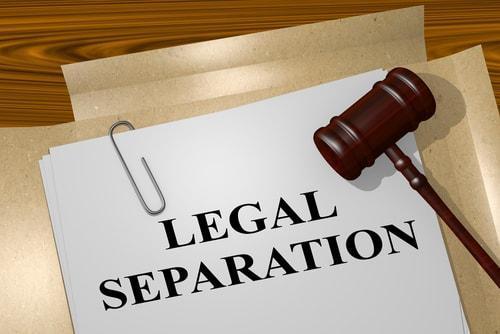Wheaton |
St. Charles |
Sycamore
 630-665-7300
630-665-7300
Recent Blog Posts
Top Five Myths and Misunderstandings About Sexual Harassment
 You probably hear the words “sexual harassment” more often today than you have in decades. The recent outpouring of activism and support for victims of sexual harassment has been deeply meaningful to millions. Unfortunately, there is also a lot of confusion surrounding sexual harassment law and what behavior is considered sexual harassment. The following are the most common misconceptions about sexual harassment.
You probably hear the words “sexual harassment” more often today than you have in decades. The recent outpouring of activism and support for victims of sexual harassment has been deeply meaningful to millions. Unfortunately, there is also a lot of confusion surrounding sexual harassment law and what behavior is considered sexual harassment. The following are the most common misconceptions about sexual harassment.
Myth 1: Sexual Harassment is Synonymous with Sexual Misconduct or Sexual Abuse
There is a lot of misunderstanding about what different sex crimes are called. This is partially due to some phrases being used casually and partially due to variances between different states' terminology. Sexual harassment, as it pertains to the law, can only happen in a work or school environment. A construction worker who catcalls a passerby may be acting in an unacceptable way, but this is not technically sexual harassment.
How Mediation Can Help Disputing Couples Reach an Agreement
 If you are a TV or movies buff, you have probably seen many dramatic scenarios played out in a courtroom. In the movie Liar Liar, for example, a divorcing couple with children bitterly argues about who should have custody of the kids. During the divorce proceedings, the wife admits that she wants full custody of the children even though her ex-husband is a “wonderful father.” Although courtroom scenes in movies are usually highly exaggerated and dramatized, the truth is that resolving family law issues in court can bring out the worst in people. Sometimes, simply being in a court environment makes otherwise reasonable spouses argue every detail of their divorce. Fortunately, there is an option for Illinois residents seeking a divorce who wish to resolve their issues without court intervention. Mediation is an alternative to courtroom litigation which helps disagreeing parties amicably negotiate a practical agreement.
If you are a TV or movies buff, you have probably seen many dramatic scenarios played out in a courtroom. In the movie Liar Liar, for example, a divorcing couple with children bitterly argues about who should have custody of the kids. During the divorce proceedings, the wife admits that she wants full custody of the children even though her ex-husband is a “wonderful father.” Although courtroom scenes in movies are usually highly exaggerated and dramatized, the truth is that resolving family law issues in court can bring out the worst in people. Sometimes, simply being in a court environment makes otherwise reasonable spouses argue every detail of their divorce. Fortunately, there is an option for Illinois residents seeking a divorce who wish to resolve their issues without court intervention. Mediation is an alternative to courtroom litigation which helps disagreeing parties amicably negotiate a practical agreement.
Legal Separation Versus Divorce in Illinois
 If you are considering splitting up with your spouse in Illinois, you have several paths for doing so. Most couples end their marriage through divorce, but a legal separation is another option married couples have. Separation differs significantly from divorce, mainly in that separation is not designed to be permanent. Married couples seeking a divorce in Illinois are not required to be legally separated before getting divorced, but some couples choose to pursue a legal separation for other reasons.
If you are considering splitting up with your spouse in Illinois, you have several paths for doing so. Most couples end their marriage through divorce, but a legal separation is another option married couples have. Separation differs significantly from divorce, mainly in that separation is not designed to be permanent. Married couples seeking a divorce in Illinois are not required to be legally separated before getting divorced, but some couples choose to pursue a legal separation for other reasons.
Benefits of Legal Separation
Legal separation is a milder option than divorce. There are only a few reasons a couple may pursue a legal separation. Being legally separated can provide couples time apart before they make a final decision about whether or not to actually get divorced. Some people get a legal separation for religious or cultural reasons. Furthermore, separation can be a useful legal tool for individuals with complicated financial situations such as business owners or venture capitalists. When a couple is legally separated, the wealth and property they accumulate during this time is not considered marital property. If you believe your divorce may be extensive, a separation can protect you and your assets during the process.
How Much Compensation Can I Receive for Workplace Sexual Harassment?
 If you have been a victim of sexual harassment at work, you may have the opportunity to receive compensation for damages. Sexual harassment is a type of employment discrimination protected against by both federal law as well as Illinois state law. Hostile work environment harassment occurs when an employee is subjected to unsolicited sexual advances, antagonistic behavior, or disparaging remarks about his or her gender which negatively affect the employee's ability to do his or her job. Quid pro quo sexual harassment refers to instances when a person of authority such as a boss or manager attempts to use his or her authority to gain sexual favors from subordinates. For some victims of workplace sexual harassment, filing a discrimination claim allows them to hold their employer accountable for wrongdoing and receive compensation for damages.
If you have been a victim of sexual harassment at work, you may have the opportunity to receive compensation for damages. Sexual harassment is a type of employment discrimination protected against by both federal law as well as Illinois state law. Hostile work environment harassment occurs when an employee is subjected to unsolicited sexual advances, antagonistic behavior, or disparaging remarks about his or her gender which negatively affect the employee's ability to do his or her job. Quid pro quo sexual harassment refers to instances when a person of authority such as a boss or manager attempts to use his or her authority to gain sexual favors from subordinates. For some victims of workplace sexual harassment, filing a discrimination claim allows them to hold their employer accountable for wrongdoing and receive compensation for damages.
Types of Damages Available for Financial Compensation
In the context of an employment discrimination claim, the term “damages” refers to harm caused by the discriminating or harassing behavior. The amount of compensation a claimant can be awarded for sexual harassment is dependent on the damages he or she incurred. Damages in a sexual harassment claim most often include compensation for lost wages and missed career opportunities. Sometimes, compensation for the victim's pain and suffering, called compensatory damages, is awarded as well. Punitive damages are the least common type of damages addressed in sexual harassment claims and are designed to “punish” the employer for failing to address severe harassment or discrimination.
How Dating After Divorce Could Affect Your Children
 With all that you have endured as your marriage ended, nobody has the right to deny you new opportunities for happiness in the wake of your divorce. You have every right to make the most of your new life, and, in some cases, doing so may include pursuing new romantic interests. While casual dating and possibly a serious relationship after your divorce could have a positive effect on your overall health and self-esteem, there are a few things that you should keep in mind, particularly if you are a parent.
With all that you have endured as your marriage ended, nobody has the right to deny you new opportunities for happiness in the wake of your divorce. You have every right to make the most of your new life, and, in some cases, doing so may include pursuing new romantic interests. While casual dating and possibly a serious relationship after your divorce could have a positive effect on your overall health and self-esteem, there are a few things that you should keep in mind, particularly if you are a parent.
Take All the Time You Need
Dating someone new while your divorce is still pending is not usually the best idea, but once your divorce is finalized, you should feel free to start seeing whomever you choose. Keep in mind, however, that you may not be ready jump back into the dating pool right away. Alternatively, you may be fine with casual dating, but not with getting involved in another serious, long-term relationship. A divorce often leaves emotional and psychological scars that may take significant time to heal.
Earning Capacity Can Affect Spousal Support
 If you are thinking about filing for divorce, you may be concerned about the financial implications of such a decision. The process itself can be very expensive is some situations, but you could also be worried about making it on your own, especially if your spouse was the primary wage-earner in your family. To address this concern, you may consider including a request for maintenance with your divorce filing. Maintenance payments, sometimes known as alimony, may be ordered to help offset some of the economic challenges that can be created by your divorce. Such payments are not guaranteed, however, and the court must identify a spouse's need before ordering it.
If you are thinking about filing for divorce, you may be concerned about the financial implications of such a decision. The process itself can be very expensive is some situations, but you could also be worried about making it on your own, especially if your spouse was the primary wage-earner in your family. To address this concern, you may consider including a request for maintenance with your divorce filing. Maintenance payments, sometimes known as alimony, may be ordered to help offset some of the economic challenges that can be created by your divorce. Such payments are not guaranteed, however, and the court must identify a spouse's need before ordering it.
Need-Based Considerations
There are many factors that the court will take into account when deciding on the appropriateness of a maintenance order, including the lifestyle that the couple established in their marriage and how the marital property will be or has been divided in the divorce. As you might expect, each spouse's income must also be considered, but the court will look at more than just how much you and your spouse actually earn. The Illinois Marriage and Dissolution of Marriage Act states that the court must also take into account “the realistic present and future earning capacity of each party.”
Sexual Harassment Lawsuits Can Spawn from Holiday Office Parties
 The atmosphere in workplaces across the United States has been altered by the influx of sexual harassment accusations in the news. Amid the #MeToo movement, many business owners are eliminating holiday parties. Others are keeping the holiday office party but are not allowing alcohol to be consumed. Opinions about this vary dramatically from person to person, but one thing we can all agree on is that every employee deserves to be treated with respect at their workplace.
The atmosphere in workplaces across the United States has been altered by the influx of sexual harassment accusations in the news. Amid the #MeToo movement, many business owners are eliminating holiday parties. Others are keeping the holiday office party but are not allowing alcohol to be consumed. Opinions about this vary dramatically from person to person, but one thing we can all agree on is that every employee deserves to be treated with respect at their workplace.
Inappropriate Behavior at Office Parties is Not a New Phenomenon
Countless sitcom episodes have relied on holiday office party shenanigans to drive the plot. The holiday office party has become almost synonymous with drinking too much and making a fool of yourself. In television shows and movies, there are rarely consequences for those who make sexual advances toward other employees. However, in real life, unprofessional or sexually-charged behavior during a Christmas party can result in a sexual harassment lawsuit.
Understanding the Law Regarding Separation and Divorce
 If you are in the midst of a tumultuous marriage—or a marriage that lacks the warmth and contentment for which you were hoping—you may have given some thought to a trial separation. In fact, you may have already spent several weeks staying with a friend or family member as you considered whether to file for divorce.
If you are in the midst of a tumultuous marriage—or a marriage that lacks the warmth and contentment for which you were hoping—you may have given some thought to a trial separation. In fact, you may have already spent several weeks staying with a friend or family member as you considered whether to file for divorce.
These situations occur frequently enough that they are practically formulaic in today's culture. A married couple grows apart, one spouse moves out, and, in many cases, a divorce eventually ensues. Common practices, however, are not equivalent to statutory requirements. The fact that most people do something a certain way does not mean that you must do the same in a similar situation. Such is the case with a period of separation prior to divorce, at least according to Illinois law.
The Difference Between Legal Separation and Living Separate and Apart
When most people talk about a separation, they are usually referring to a married couple no longer sharing the same household. The Illinois Marriage and Dissolution of Marriage Act considers such an arrangement as “living separate and apart,” which is very different from a legal separation. A legal separation, by comparison, is a court-issued judgment that formally declares the couple to be separated. Legal separations are sometimes used by couples who do not wish to divorce for personal or religious reasons or those who are not quite ready to divorce. Following a legal separation, orders may be entered for spousal and child support, parental responsibilities, and, if the couple chooses, the division of property.
How to Get Through the Holidays as a Divorced Parent
 Whether you have been divorced for years, or you are only starting the process of ending your marriage, separated parents have many challenges during the holidays. You may feel like it is nearly impossible to get through Christmas, Hanukah, Kwanzaa or other special holidays as a divorced person. However, experts do have some tips for divorced parents which may make your holiday season a little more manageable.
Whether you have been divorced for years, or you are only starting the process of ending your marriage, separated parents have many challenges during the holidays. You may feel like it is nearly impossible to get through Christmas, Hanukah, Kwanzaa or other special holidays as a divorced person. However, experts do have some tips for divorced parents which may make your holiday season a little more manageable.
Avoid Bottling Up Your Emotions
Many parents who get divorced are hyper-focused on how the divorce will affect their children. While making sure your children are comfortable is an admirable and important part of being a parent, experts say divorced parents should be careful not to neglect their own emotional needs. Many people experience divorce in a similar way to loss. If you are ending your marriage, you may experience feelings of anger, grief, despair, and even relief. Talking about these feelings with a trusted friend or therapist can help you manage them.
Healthy Conversations About Sexual Harassment in the Workplace
 Over the last year, national news headlines have been dominated by one story after the next about allegations of sexual harassment, sexual assault, and other types of inappropriate sexual behavior. While they have different names depending on the jurisdiction, sexual assault and other types of unwelcome sexual contact are criminal acts. Sexual harassment, however, is a different story. By law, sexual harassment is a form of sex-based employment discrimination. While it is still illegal, it is a matter that is handled through state and federal agencies, as well as the civil court system.
Over the last year, national news headlines have been dominated by one story after the next about allegations of sexual harassment, sexual assault, and other types of inappropriate sexual behavior. While they have different names depending on the jurisdiction, sexual assault and other types of unwelcome sexual contact are criminal acts. Sexual harassment, however, is a different story. By law, sexual harassment is a form of sex-based employment discrimination. While it is still illegal, it is a matter that is handled through state and federal agencies, as well as the civil court system.
Because it is an employment-related matter, sexual harassment is also somewhat easier to recognize and address than acts of sexual violence often are. Sexual harassment can even be prevented and avoided if those who work together are willing to have open and honest conversations about the topic. Depending on where you work, management may be willing to facilitate such discussion. If a formal meeting is not feasible, consider opening lines of communication with your coworkers on your own—regardless of your gender or your previous experience with sexual harassment.


 Read More
Read More





